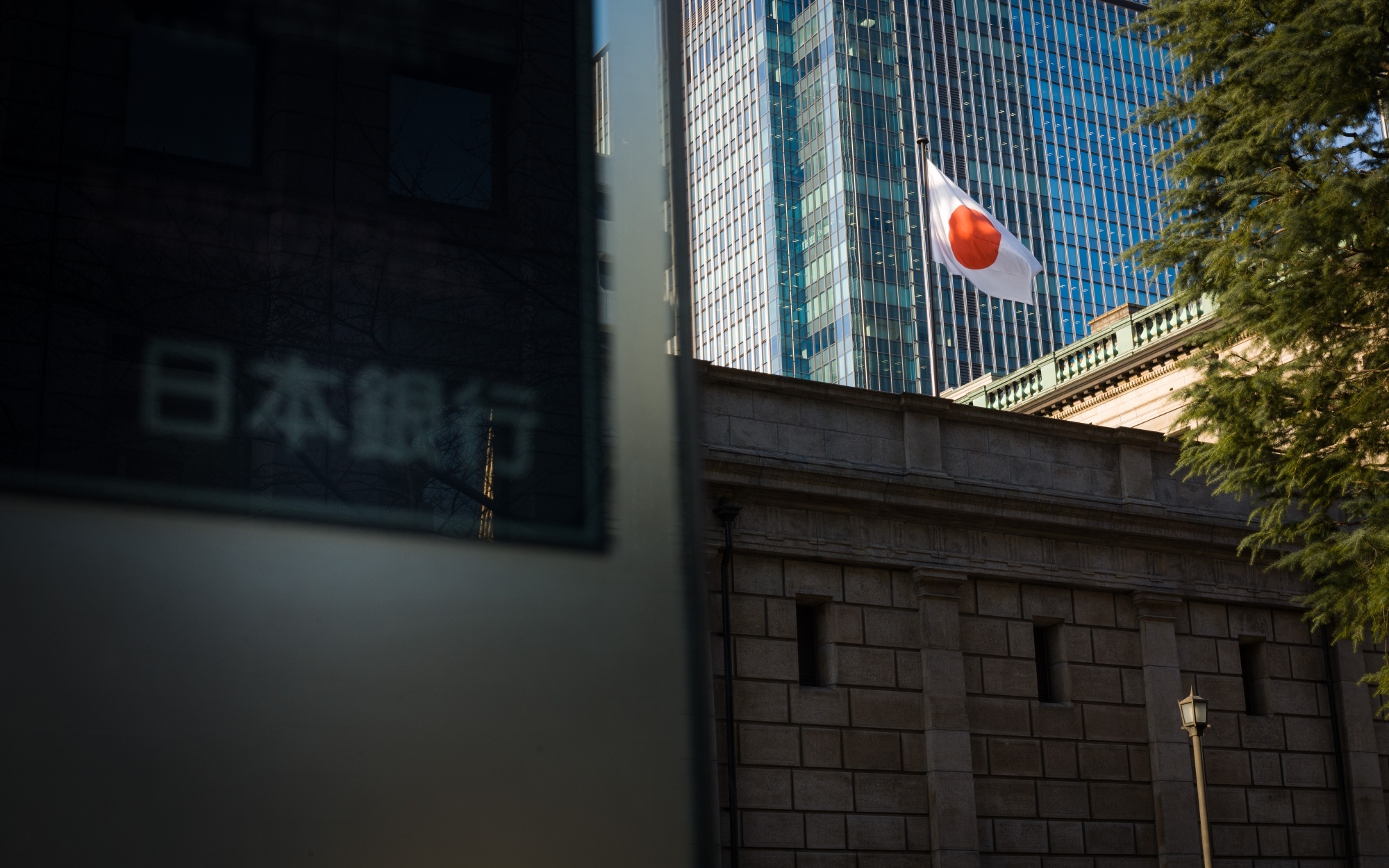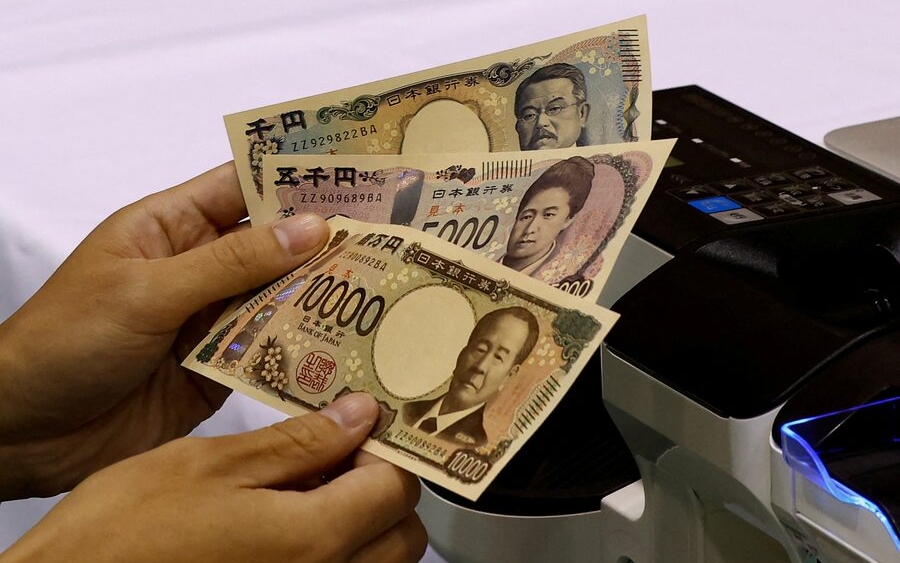OpenAI’s Future At Risk Amid Staff Exodus Threat
OpenAI faces an uncertain future as the majority of its staff, including key executives, consider leaving for Microsoft unless ousted CEO Sam Altman is reinstated. Board turmoil and employee discontent pose a threat to the company’s stability, partnerships, and developments.
Nvidia’s AI Dominance Fuels Stock Expectations
Investors pin hopes on Nvidia’s earnings report, seeking reassurance amid AI fervor. The chip maker’s consistent outperformance fuels soaring expectations, with Wall Street forecasting robust sales of USD 6.2 billion.
SEC Sues Kraken In Extensive Crypto Exchange Crackdown
The SEC filed a lawsuit against Kraken, alleging unregistered securities dealings and the mixing of customer funds. Kraken refutes claims, standing firm on its position amidst increased regulatory crackdowns on crypto exchanges.
Today’s News

Image Source: Bloomberg.
Amid decades of declining prices, Japan is finally witnessing global inflationary forces that are prompting a significant reconsideration of investment approaches. This shift is triggered as the Bank of Japan contemplates a substantial policy alteration.
For years, international investors leaned heavily towards assets linked to Japan’s aging population or profiting from a weakening yen. However, a remarkable transformation is underway. Attention now pivots towards anticipating higher interest rates, more lucrative dividends, and a resurgence in consumer spending.
The slow but impending policy switch could herald an entirely new era of investment in Japan, particularly if the predicted long-term inflation rate of 2% in 2024 materializes. With consumers no longer expecting continual price declines, significant purchases may be on the horizon. Additionally, a potential rise in interest rates by the Bank of Japan could amplify banks’ lending margins.
Market Surge And Shifts
Japanese stock markets have surged to their highest levels since 1990, primarily led by the outperformance of consumer and financial stocks compared to domestic indexes. However, the brighter economic outlook is overshadowed by a gloomy forecast for Japanese government bonds due to escalating inflation.
In a significant deviation from conventional investment choices related to Japan’s aging population, notable investors like Shigeka Koda, the CEO of the Singapore-based hedge fund Four Seasons Asia Investment of USD 500 million, have shifted focus. Previously, Koda favored companies like Kosaido Holdings, a crematorium operator, and Rheon Automatic Machinery, specializing in cake-making robots for food manufacturers dealing with workforce shrinkage. In a historic move, Koda allocated considerable investment to Japanese bank Kyushu Financial, anticipating an upward trend in Japanese interest rates.

Image Source: Kyushu Financial Group.
“Interest rate policy is undergoing a historic change,”
“Something new is in the offing.” said Shigeka Koda.
Similar shifts in investment strategies have been witnessed by professionals like Steve Donzé, Deputy Head of Investment at Pictet Asset Management, who also bet on Japanese bank stocks, and Junichi Inoue, head of Japanese equities at Janus Henderson, who emphasizes consumer businesses capable of passing higher energy and food costs on to customers, citing the growing margins and earnings of convenience stores.
Inflation And Wage Dynamics
While Japanese wages adjusted for inflation have experienced a consistent decline for 18 consecutive months until September, expectations loom high for significant pay hikes in the spring, essential for driving sustained inflation. This hope aligns with data indicating continued acceleration in core consumer prices, surpassing targets for the 19th straight month.
Global fund managers, per a Bank of America survey, exhibit the most positivity towards Japanese stocks since March 2018. This renewed confidence is further boosted by Warren Buffett’s investments and the Topix index’s impressive 26% jump this year, propelled by recent corporate governance reforms.
Bond Market Concerns
However, the rising inflation presents concerns for fixed-interest bonds, particularly in Japan. Investors fear that the current low yield on bonds may render them unattractive in the face of escalating inflation. While the Bank of Japan had previously supported the bond market by buying government debt to limit yields, the prospect of the policy’s end amid monetary tightening raises caution among investors.
Jon Day of Newton Investment Management suggests that Japan’s inflation might not be transitory, unlike the trends witnessed in the United States or Europe. He highlights the bond market’s underestimation of this potential shift, considering even a long-term inflation rate of 1% in Japan would render the current bond yields unprofitable.
Amidst these concerns, expectations of rising yields raise the possibility of reviving the depreciating yen. The currency, previously weakened to 133 per dollar in December 2022 when the BOJ hinted at yield-curve control review, plummeted to 151.92 last week.

Image Source: The Globe and Mail.
Japan’s economic landscape is undergoing a monumental transformation, spurring investors to realign strategies. The shift from age-related investments to sectors poised for inflationary times signifies a turning point, yet uncertainties persist, particularly regarding bond market repercussions and currency trajectories.
“The direction of travel is clear and away from unsustainably easy (monetary) policy,” Pictet’s Donzé said, forecasting “a stronger currency as we move into 2024.”



